In thinking about the trajectory of President Barack Obama’s approach to the Afghanistan War, from the initial March 2009 strategy review to the December 2009 troop surge to last night’s address, it occurred to me that, when it comes to the politics of the war, Afghanistan has gone from being the “Good War” to being what is now the “Subprime War.” The administration’s initial March 2009 review was the equivalent of a “nothing down” mortgage. As I noted at the time, it threaded a political needle, articulating a strategy — a counterinsurgency approach to counterterrorism — that allowed everyone to […]
Latest Archive
Free Newsletter
I just wanted to add a couple of final thoughts to my post last week on the Libya . . . war. I initially agreed with the Obama administration’s sense that the U.S. participation did not rise to the constitutional threshold of war powers. But just about every online writer whose opinion I respect considers that assessment to be not only unconvincing but ridiculous on its face. That, combined with the fact that we now know the administration arrived at it by cherrypicking its own internal legal advice, makes me realize that I, like the Obama administration, was taking an […]
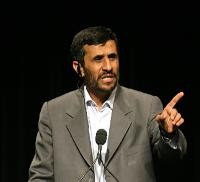
Iranian President Mahmoud Ahmadinejad, who has represented the face of Iran for the West for more than half a decade, is on his way out of power in Tehran. Whether or not the ayatollahs formally push him out of office is yet to be seen. But for practical purposes, the Ahmadinejad era of the Islamic Republic’s history is coming to an end. Two years ago, during the height of the pro-democracy protests that followed Iran’s presidential elections, most of the country’s most powerful clerics stood steadfastly behind Ahmadinejad. As millions of Iranians took to the streets accusing Ahmadinejad and his […]
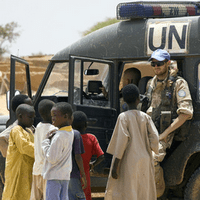
Editor’s note: This is the first of a two-part series on rebel groups in Central Africa. Part I examines recent moves toward peace and stability in Chad and the Central African Republic. Part II will examine ongoing instability in Sudan and the Democratic Republic of the Congo. On June 12, the government of the Central African Republic (CAR) and the country’s last major rebel force, the Convention of Patriots for Justice and Peace, signed a peace agreement. The following day, mediators in Chad reached a peace deal with the Popular Front for Reconstruction, a rebel movement based in the CAR […]
The latest round of U.N.-sponsored talks to resolve the conflict over Western Sahara foundered recently. In an email interview, Yahia H. Zoubir, a professor of international relations and international management and the director of research in geopolitics at Euromed Management in Marseilles, France, discussed the Western Sahara talks. WPR: What are the major issues involved in the Western Sahara conflict? Yahia H. Zoubir: There are two major issues. First is the illegal occupation of Western Sahara by Morocco, which invaded the territory in 1975, despite an opinion issued by the International Court of Justice (ICJ). The ICJ had refuted Morocco’s […]
Russian President Dmitry Medvedev’s announcement Monday that he desires a second term as president but won’t run against Prime Minister Vladimir Putin should Putin declare his candidacy has inspired heightened speculation over Russia’s unusual power-sharing duo ahead of elections next March. When attempting to understand the Putin-Medvedev dynamic, Ben Judah, a London-based policy fellow and Russia specialist with the European Council on Foreign Relations, says one must take care not to view the two as being in competition with each other. “It shouldn’t be confused as a battle between two rivals,” Judah reminded Trend Lines earlier this week. “The tandem […]
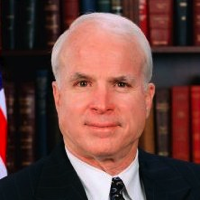
Sen. John McCain is worried about the direction of U.S. foreign policy, especially within his own party. Some Republican presidential contenders have questioned the nation-building mission in Afghanistan. Others point out that the undeclared war in Libya is neither necessary nor constitutional. “This is isolationism,” an aghast McCain declared on the ABC News program “This Week.” Isolationism? The term “isolationist” is little more than a slur. It essentially means someone who thinks the U.S. should engage in fewer foreign wars than the speaker does. The term emerged in the late-19th century, when it was made popular by the ardent militarist […]
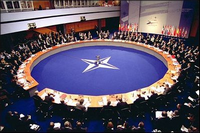
Two weeks ago, Defense Secretary Robert Gates fired a parting broadside at the NATO alliance. Gates argued that many European countries have chronically underfunded defense, to the extent that they are now incapable of contributing to the multilateral expeditionary operations that have become part of the alliance’s portfolio. Gates’ exasperation focused mainly on operations in Libya, which have now considerably outlasted expectations and may soon outlast the will and capability of NATO’s European members. It is worth noting, however, that protection of Libyan civilians through airstrikes sits so far outside NATO’s founding purpose that the framers of the 1949 treaty […]
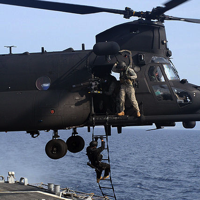
A month after the mission that killed Osama Bin Laden, defense analysts are pointing to a growing collaboration between conventional and irregular forces and are calling for a lighter global military footprint, one based on raiding and strike capability rather than ponderous presence. The newfound enthusiasm for “collaborative warfare” is reviving a concept once thought dead: network-centric warfare (NWC). Paradoxically, NWC has proved itself well-suited to low-intensity operations and the culture of special operations forces, where once it was commonly associated with high-intensity conflict against a peer competitor. But NWC’s low-intensity revival also suggests that it will continue to face […]
Earlier this month, the U.S. Navy forced the M/V Light, a Belize-flagged North Korean vessel en route to Myanmar, to return home, invoking the Proliferation Security Initiative (PSI), an effort to stop trafficking in nuclear materials. In an email interview, Mark J. Valencia, a senior associate at the Nautilus Institute, discussed the operations and effectiveness of the PSI. WPR: Briefly, how does the Proliferation Security Initiative operate? Mark J. Valencia: The PSI does not create a new legal framework; rather, it uses existing national authorities and international law to achieve its goals. Initially, 11 nations signed on to the “Statement […]

BEIJING — Some China-watchers have argued recently that the rule of law is weakening in the People’s Republic. However, a less-commented-on countertrend is the re-emergence of legal processes inspired by indigenous conventions and traditions such as trial by public opinion. The trend seems to be deepening, reflecting a profound ideological shift in China’s legal approach. Moreover, this shift may help explain China’s more assertive foreign policy over the past 18 months and also has significant implications for the country’s leadership aspirations in Asia and its continued integration in international institutions. Indigenous Chinese legal process adheres to what has been called […]
As tens of thousands of Syrian refugees have crossed into Turkey in recent days, and thousands more have set up camp along the border, questions are mounting over how Turkey and the greater international community should respond. Debate is particularly fervent within the Turkish media, where some reports indicate that Ankara has begun to entertain the possibility of deploying its own military to create a “buffer zone” for refugees within Syrian territory, on the southern side of the Syria-Turkey border. The report was met with skepticism from Henri Barkey, a visiting scholar in the Middle East Program at the Carnegie […]

With oil prices nearing $120 a barrel and Libyan exports shut down, all eyes were on the 12 members of the Organization of Petroleum Exporting Countries (OPEC) during their meeting in Vienna earlier this month. The International Energy Agency (IEA) had strongly urged OPEC, which produces 40 percent of the world’s oil and holds much of the spare capacity, to raise production output to stem rocketing oil prices and prevent a potential double-dip recession. That did not happen. In what Saudi Oil Minister Ali al-Naimi labeled one of the worst meetings he had attended, the proposal by Saudi Arabia, Kuwait, […]
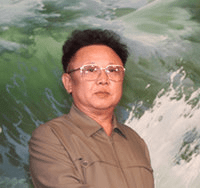
The Asan Institute for Policy Studies held its first Asan Plenum in Seoul, South Korea, from June 12-15. The plenum, which the institute plans to make an annual event, gathered representatives of the world’s leading think tanks to discuss a single global challenge, which will vary from year to year. The goal is for the dialogue to then influence the policies of the world’s governments toward the chosen issue. This year’s plenum addressed “Our Nuclear Future,” with the goal of providing “a much-needed comprehensive reassessment of safety and security issues which have crucial implications for our nuclear future.” Some 250 […]
German Chancellor Angela Merkel recently paid an official visit to New Delhi, where she discussed Indo-German differences over U.N. Security Council reform, among other issues, with Indian Prime Minster Manmohan Singh. In an email interview, Rajendra K. Jain, professor of European studies at Jawaharlal Nehru University, discussed India-Germany relations. WPR: What is the recent history of Germany-India relations? Rajendra K. Jain: After several decades of “benign neglect” and mutual indifference, Indo-German relations have substantially improved and deepened in the past decade in nearly all fields, including a significant increase in high-level bilateral visits. A strategic partnership was established in 2001. […]
